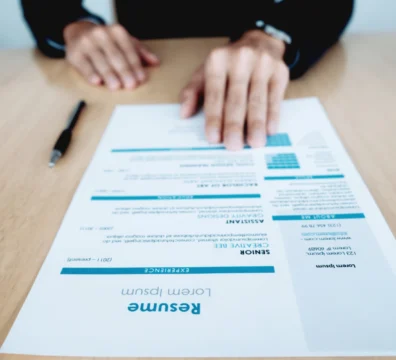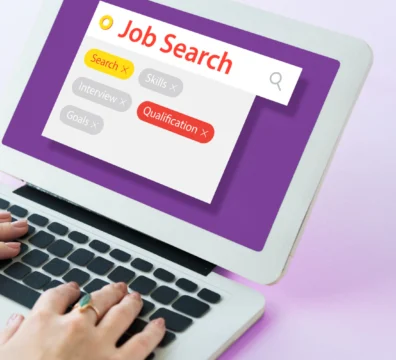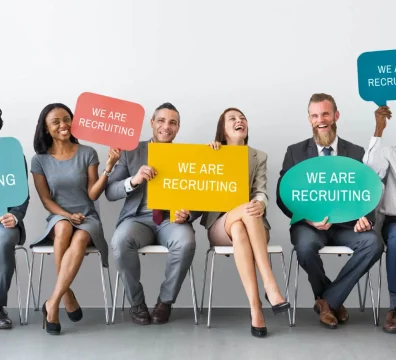A company’s success largely depends on its workforce, which means one wrong choice can break your business. This makes interviews an essential part of the hiring process; though it is time-consuming it is best for your business’s long-term success.
An interview assesses a candidate’s real skills, qualifications and experience and ensures they are the right fit for the organisation. However, interviews can be of different types depending on your needs.
Understanding the various types of interviews is crucial for businesses utilizing staff outsourcing services to effectively assess candidates’ suitability and skills for the job.
This guide shares the purpose of an interview, different types of interviews in HRM, modes of interview, and how to conduct them.
What are the Objectives of the Interview in HRM?
An interview is vital to recruitment processes; it is a conversation between HRs, managers, technical leads, and job seekers. The primary goal is to gauge the competence of the interviewee, understand their technical abilities and personality traits, and comprehend whether they are the right fit for the position and the company.
The HR also give details about the job and the company to the candidates to craft a favourable impression in their minds.
Nearly 40% of people lie on their CVs, making interviews an essential part of the employment process, where you can assess the reality of these candidates.
As per a study, nearly 118 people apply for a single job position on average, and only 20% are invited to an interview. The objectives of conducting different types of employment interviews in HRM are many. Some of these are listed below.
- Evaluation of a candidate’s work experience
- Introduce a candidate to the company
- Assessing a candidate’s technical and soft skills
- Identify the most qualified and best-fit candidates
- Defining the job role and company expectations
What are the Different Types of Interviews in HRM?
An interview undertaken for employee selection can be of different types with the same purpose of choosing the right fit. Let us dive deep into the different types of interviews in HRM.
Group Interview
Group interviews are arranged to conduct interviews of all candidates or a group of candidates at a time. Usually, a topic is given to discuss among all the interviewees, and the recruiters assess the creativity and behaviour of each one in the group.
It saves time for the recruiter, especially when there are numerous applicants for fewer job vacancies.
Some popular types of group interviews are:
Panel Interview
In panel interviews, more than one interviewer interviews a candidate simultaneously. The panel usually comprises supervisors, team members and HR representatives. Each interviewer specialises in a domain and assesses the candidate’s skills, qualifications and experiences.
Focus Group Interview
Companies conduct a focus group interview with candidates grouped according to their common traits or experiences and ask specific questions and recruitment survey questions to them. The recruiter observes each candidate’s response and selects them for a particular role accordingly.
Structured Interview
Structured interview in HRM uses a particular interviewing method to assess every candidate applying for a similar position. Here all the applicants will receive exactly the same questions and in the same order to avoid biased questioning. The goal is to identify candidates who answer all or most of the questions best.
Unstructured Interview
An unstructured interview, also known as a non-directive interview, is entirely opposite to structured interviews and has no pre-arranged set of questions. Here, the questions vary according to company requirements and candidate competencies.
The primary objective is data collection, where the HRs ask questions to candidates for in-depth information on a particular topic.
One-to-One Interview
In a one-to-one interview, a single interviewer asks questions focused on general, technical, and operational areas as per the position to a single interviewee. The tone used in such interviews is often conversational, where the interviewer begins the interview and allows the candidate to ask questions by the end.
Below are mentioned some popular one-to-one interview styles:
Semi-Structured Interview
A semi-structured interview is a combination of structured and unstructured types of interviews in HRM. Here, the interviewer has an idea of what questions to ask each candidate, but unlike a structured interview, there is no phrasing or order of these questions.
This is the most commonly conducted interview by companies because they find that the information received is reliable and comparable, and the interviewer can ask follow-up questions to get more information.
Situational Interview
A situational interview in HRM is one in which candidates are provided with a sample situation, and the HR asks how they might face them. Such interviews are highly focused on the future and involve hypothetical scenarios, evaluating the candidate’s approach to solving real-life problems and abilities to handle job-related situations.
Stress Interview
A stress interview focuses on the candidate’s ability to handle stressful situations. Here the interviewer keeps asking several questions simultaneously and assesses candidates’ presence of mind and response to practical challenges.
Behavioural Interview
A behavioural interview assesses the candidate’s behaviour in past employment-related situations. It gives HR a clear vision of the candidate’s probable efficiency in a similar role.
Technical Interview
Technical interviews can potentially assess a candidate’s technical ability and knowledge to perform the job. Such interviews are primarily conducted for engineering, science and tech roles.
During a technical interview, candidates are asked to write codes or execute a task practically on a shared computer screen to assess their technical proficiency.
Informal Interview
These interviews are conducted in an informal way where the recruiter sets an interview without conducting a written assessment of the candidate. It doesn’t include a fixed procedure of asking questions and is often a friendly interview.
It is similar to an open call interview, where candidates can meet the hiring manager for seasonal or temporary job roles without appearing for a formal screening and selection process.
Formal Interview
This is just the opposite of informal interviews, often called planned interviews. Here the candidates will be informed about the interview in advance, and the interviewer plans and prepare questions for the interview.
What are the Modes for Conducting Different Types of Interviews in HRM?
Interviews can be conducted in a few ways, as listed below.
Face-to-Face Interview
These are the most common mode of interviews where both the interviewer and interviewee meet in person to discuss a job position.
Telephonic Interview
HR conducts a telephonic interview to assess the candidates over telephonic conversations. The recruiter asks questions depending on the candidate’s resume and the roles and responsibilities of the job profile.
Video Interview
A video interview is similar to any face-to-face interview but is conducted via a video application like Zoom, Slack, Meet, or Teams. Recruiters often use video interviews to access candidates for remote positions or when they cannot appear for the interview physically.
Email Interview
Conducting an email interview is comparatively a novel approach where candidates are interviewed asynchronously. The interviewer sends questions, and candidates can respond at their own pace over a relatively extended period than traditional interviewing methods.
Email interviews are less stressful and allow candidates for more detailed answering.
How to Conduct Different Types of Interviews in HRM?
Interviews are a great chance for HRs to know their prospective employees. You can delve deeper into their skills, knowledge, and expertise, as mentioned on their resumes and during phone screening. It lets you understand the candidate’s intangible assets like passion, initiative, culture fit, behaviour, goals, attitude, professionalism, and communication skills.
Here are a few tips on interviewing candidates.
- Ask open-ended questions
- Pay attention to nonverbal cues
- Take notes of candidate responses
- Understand what’s not to ask
- Incorporate technology like an applicant tracking system
- Choose your interview methods thoughtfully
- Establish good evaluation criteria to prepare comprehensive interview questions.
- Create a set of questions before the interview.
No matter what type of interview you choose, the purpose should remain the same. An interview is not just an evaluation of intelligence and other credentials but is a legal requirement for all small and large organisations.
Also Read: Integration Engineer Interview Questions To Prepare For
How 6 Pence Helps with Staffing and Recruitment
As the market comprises thousands of capable candidates, the hiring process keeps getting more challenging for HRs to pick the right candidate for the organisation. Therefore, it is high time for recruiters to understand different types of interviews in HRM and how to conduct them to filter the best fit for your company.
Are you looking to hire quality talents for your organisation? Collaborate with 6 Pence; we are outsourcing experts for all your staffing and recruitment needs.
Our expert recruiters, rich candidate database, streamlined process for conducting interviews, background verification, and processing of all paperwork enable our business partners to find top talents without hassle.
For further information, contact us today!
Frequently Asked Questions
What are the types of interviews?
There are numerous types of interviews, including situational, structured, unstructured, one-to-one, group, telephonic, video interviews, and more.
What are the qualities of a successful interviewer in HRM?
A few qualities of a successful interviewer in HRM include the ability to recognise natural talent, experience in managing people, good conversational skills, listening attentively, emotional maturity, and adequate knowledge regarding job duties, responsibilities, and qualifications.
What are the characteristics of an interview?
Some characteristics of an interview include goal-oriented, question-answer, structured/unstructured, controlled, and balanced.




































































































